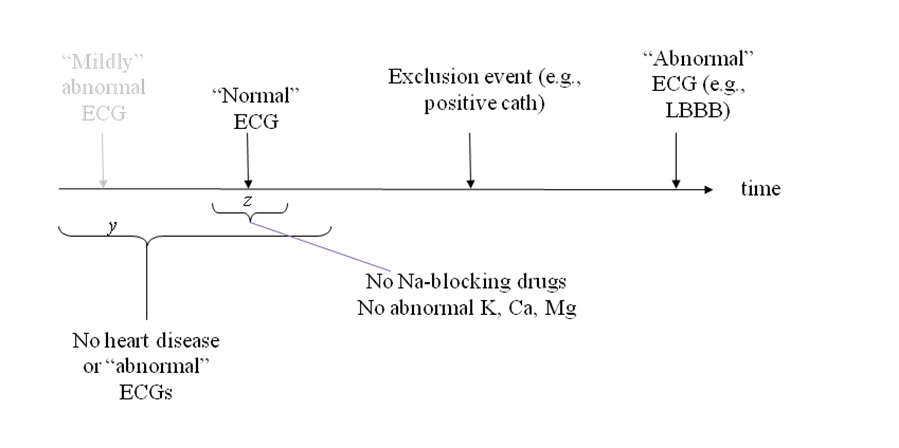Cardiac Conduction (QRS)
Algorithm to select subjects with "normal" electrocardiograms. Subjects do not have heart disease, interfering medications, or abnormal electrolytes at the time of the normal ECG. Individuals may, however, develop abnormalities later in life.
Hypothetical timeline for a single patient:

